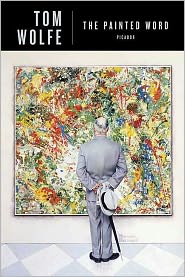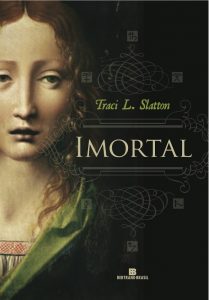 The Newington-Cropsey Cultural Center Foundation held its annual award dinner last night. My husband Sabin and I are friendly with the ineluctable Jim Cooper, as we all share the same taste in art–real art, the kind that takes skill, talent, education, hard work, and an actual aesthetic to develop. Slow art, art that has meaning. Art that is beautiful to behold.
The Newington-Cropsey Cultural Center Foundation held its annual award dinner last night. My husband Sabin and I are friendly with the ineluctable Jim Cooper, as we all share the same taste in art–real art, the kind that takes skill, talent, education, hard work, and an actual aesthetic to develop. Slow art, art that has meaning. Art that is beautiful to behold.
Beauty is the point, goddammit! The New York Times is irrelevant. Surf the internet for your news.
The Newington-Cropsey foundation also hosts political events sometimes, for the right. It is mystifying to me that classical art has found an audience among educated conservatives, though they don’t know what to do with it. Right now the whole political process in the US disgusts me. We don’t live in a democracy, that’s a myth carefully crafted for the unthinking masses. We live in a duopoly. “Public service” has become “public relations,” and our two parties are well-endowed firms for massaging, swaying, and shaping public opinion. And both of our monoliths have only one purpose: furthering the agenda of multinational corporations for whom the private individual is no more than a slave pocketbook for purchasing their usually deleterious products. To which end our government is printing money as if it were comic book pages, and setting us up for massive inflation and a debt that we can not possibly hope to pay off without bankrupting ourselves and our grandchildren, both financially and morally.
I loathe the Republicans and despise the Democrats, but some days I despise the Republicans and loathe the Democrats, just for the sake of fairness. Do I have a better solution? Not yet. I’m just pointing it out.
But I digress. Tom Wolfe received the award last night, and I got to meet him! Urbane and courteous, he smiled slightly when I told him I was a novelist. I hurried over that piece of embarrassment and mentioned that we were both parents from the same school. His daughter attended the school where my little one now goes. That gave us common ground, and he talked about how great the school was, and how much he and his wife and their now grown daughter loved it.
It was a keen delight to meet him, white suit and all. I was hard pressed not to swoon.
Jim read a long passage from THE PAINTED WORD upon introducing Mr. Wolfe, and I thought my husband was going to stop proceedings and embrace both Jim and Tom. Thirty five years ago, Tom Wolfe was writing about the inanity of separating art from meaning, of making art an illustration for the text of “concept” (that ugly, stupid word for which future generations will mock us.)
Tom Wolfe’s speech was wonderful, thought-provoking. He spoke of two kinds of art that currently, like a bad virus, infect the art world: “no hands” art, and tenure art. “No hands” art is the kind of schlock tchochkis made by, for example, Jeff Koons. The artist never touches it. Balloon puppets and glass figurines are made by elves somewhere, or by poorly paid grad students, and the artist sells it to his marks for hundreds of thousands of dollars.
Tenure art is when some purported artist devises a stunt which he or she calls “performance art.” It will be something utterly ridiculous, such as filling two balloons with vegetables and tying one to each end of a length of chain. The “artist” then takes a group of suckers, I mean onlookers, to a pond to entertain them by dropping the whole apparatus into the water. It sinks like a… a length of chain. But a month later, the rotting vegetables emit gasses into the polyurethane bags which drag the chain to the surface. The whole thing floats. For this bit of chicanery, the “artist” is awarded a University professorship, quickly given tenure, and is therefore financially taken care of for life.
Yale is particularly enamored of this kind of … stuff.
Mr. Wolfe mentioned “deskilled art”(!), as in a sculptor who makes bubble-wrap suits of armor for protecting his psyche. It’s hard to convey the exquisitely drollery of Mr. Wolfe’s soft-spoken voice. But Sabin Howard, my maddening husband and the greatest living sculptor of male nudes, who takes a few years to complete a piece, shook in his chair with laughter. His face turned cherry red and tears welled up in his eyes. In eleven years, I have only once seen him so overcome. He indifferently started watching Napoleon Dynamite and then literally fell off the bed laughing. He could only gasp, “The visuals, the visuals are hilarious.”
Back to careful craftsmanship. I am put in mind of an Op-Ed piece written by
Denis Dutton and published by the aforementioned, and largely irrelevant
New York Times. My beloved eldest daughter sent me the piece; it was assigned in her Evolutionary Biology course at Amherst. The professor was telling the students that the human species will outgrow “concept” art. It’s surprising to me that the
Times, that rag of concept, that self-proclaimed, self-important arbiter of taste, published his essay. Aware of the irony, I quote some of the relevant lines:
We ought, then, to stop kidding ourselves that painstakingly developed artistic technique is passé, a value left over from our grandparents’ culture. Evidence is all around us. Even when we have lost contact with the social or religious ideas behind the arts of bygone civilizations, we are still able, as with the great bronzes or temples of Greece or ancient China, to respond directly to craftsmanship. The direct response to skill is what makes it possible to find beauty in many tribal arts even though we often know nothing about the beliefs of the people who created them. There is no place on earth where superlative technique in music and dance is not regarded as beautiful….Future generations, no longer engaged by our art “concepts” and unable to divine any special skill or emotional expression in the work, may lose interest in it as a medium for financial speculation and relegate it to the realm of historical curiosity.
Dutton, Dennis. “Has Conceptual Art Jumped the Shark Tank.” The New York Times. Print. October 15, 2009.










